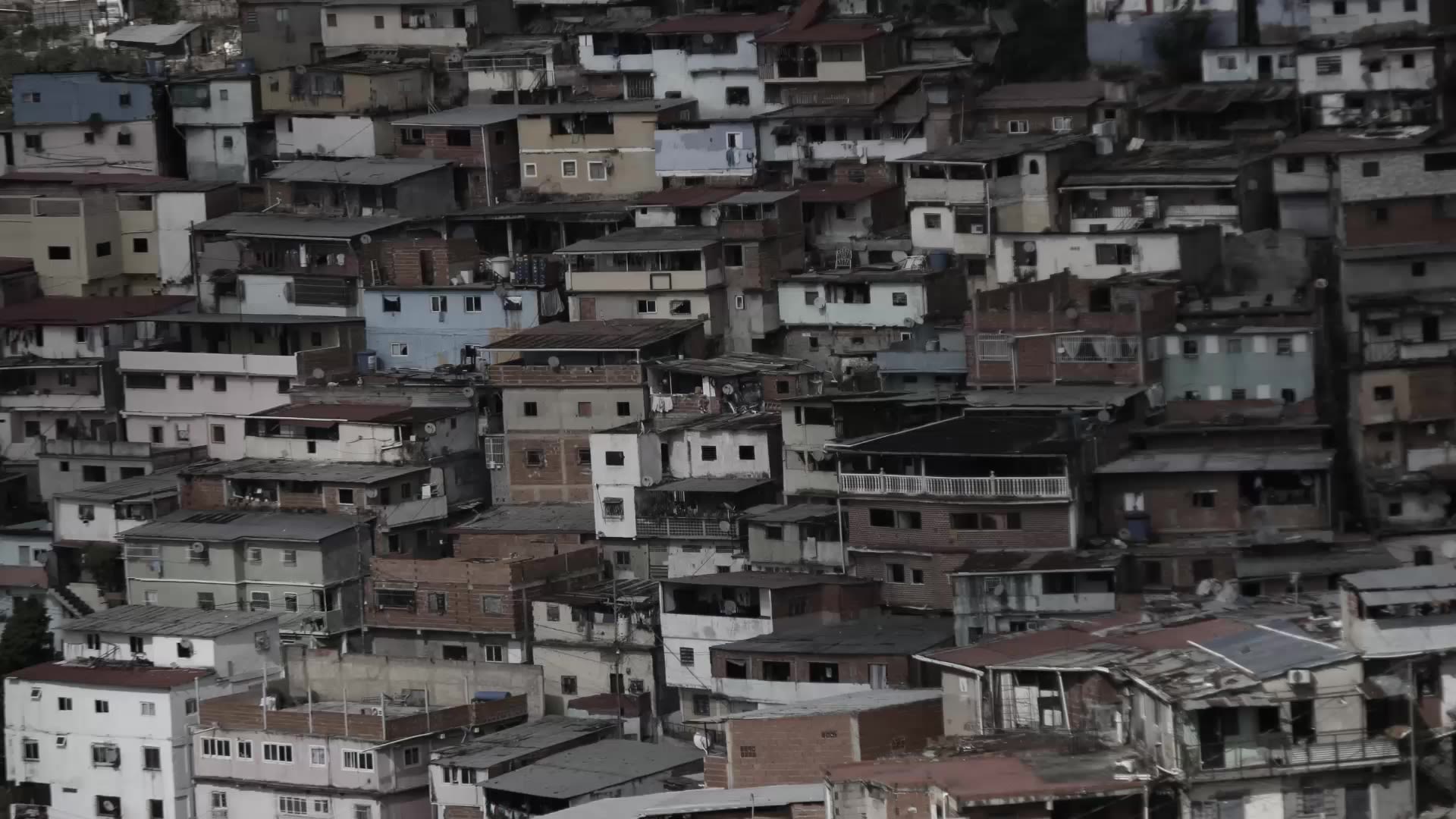
In 2021, one of Caracas’s most marginalized neighborhoods was the scene of an unprecedented intervention by state security forces to tackle a notorious criminal gang that had controlled the area for nearly seven years. People living in Cota 905 now say the police is targeting them for money
The inhabitants of “Cota 905”, a neighborhood in the southwest of Caracas, Venezuela's capital, live under the thumb of a police extortion network. Since the deadly intervention of the security forces in 2021 to dismantle the powerful "Koki" criminal gang, the area is controlled by the Bolivarian National Police (Policia Nacional Bolivariana - PNB) which has turned it into a hotspot of arbitrary arrests and extortion.
During the last two years, the police have been accused of setting up informal checkpoints in houses they had occupied illegally, from where they impart a peculiar form of social control. In Cota 905 there are eight checkpoints in the sectors of Las Luces, Villa Zoila, La Chivera, 21 de Julio, Las Brisas, barrio Moscu, El Pinar and Las Quintas, where arbitrary detentions and extortion have taken place against the locals -- mostly young people as well as transporters, storekeepers and even street vendors.
The position of Cota 905 is strategic: it is less than five kilometers from the Miraflores Palace, where Nicolas Maduro’s office is located, and close to the headquarters of the General Command of the Bolivarian National Guard (Guardia Nacional Bolivariana de Venezuela - GNB), the command of the Caracas Police and the Bolivarian National Intelligence Service (Servicio Bolivariano de Inteligencia Nacional – SEBIN).
For this investigation, Alianza Rebelde Investiga (ARI) - made up of the media outlets El Pitazo, Runrun.es and TalCual - with the editorial support of CONNECTAS, visited Cota 905 and spoke with dozens of victims and their families as well as with witnesses to the frequent police raids, and experts.
The testimonies collected follow the same pattern: police make arbitrary arrests (without legal grounds) and simulate crimes in order to extort money from citizens. Victims claim that the police usually plants drugs on them to justify the arrests and then force them to call relatives to demand between $10 and $1,000 for their release.
Several women interviewed for this story said that not a day goes by when they are not afraid that the PNB will take away their children, particularly young boys, and ask them for money for their release. Their fears are justified.
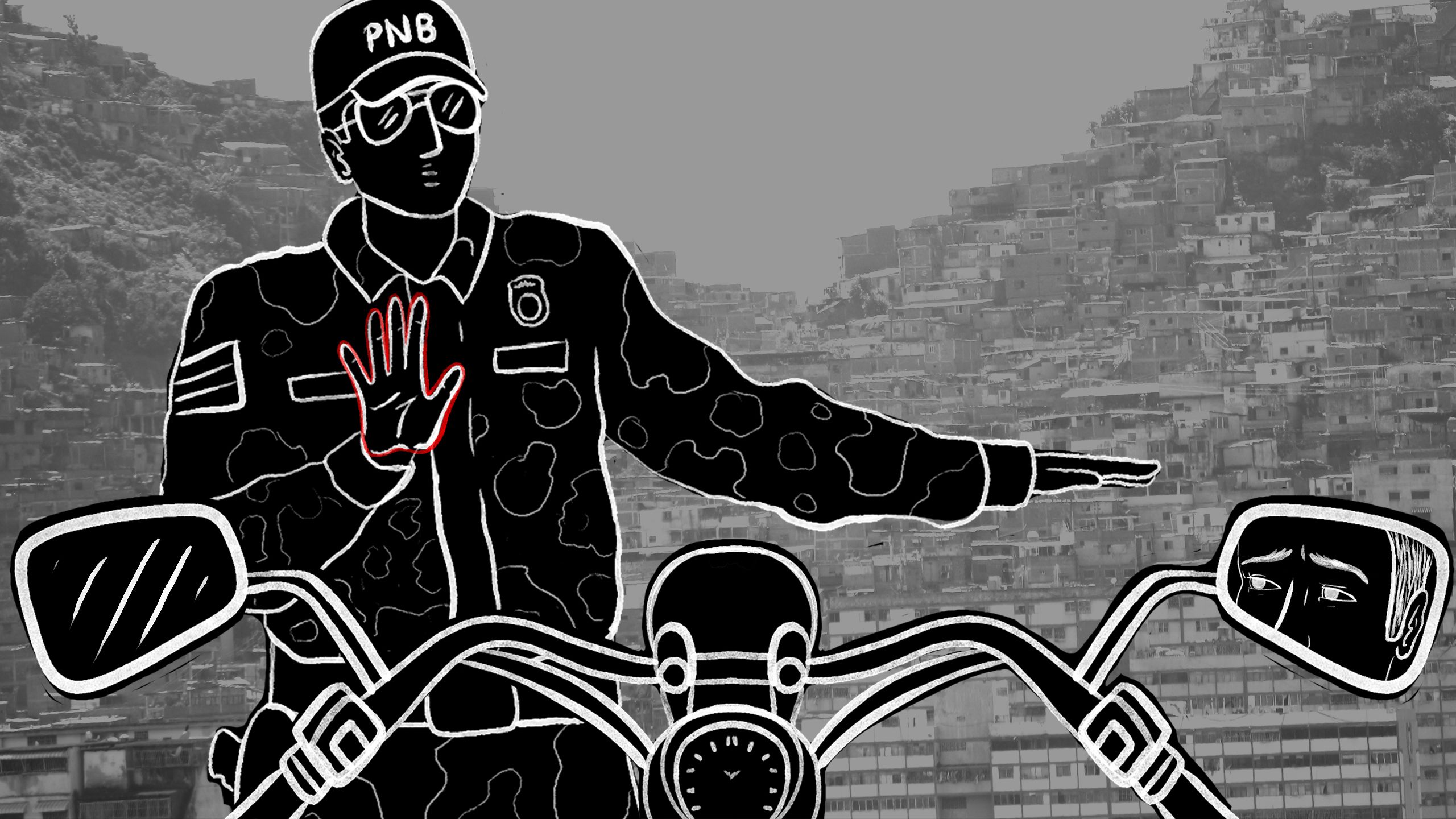
Yenny* reported that her grandson was taken away by the police in March this year. She said that the police planted drugs on him and demanded that she give them $500 dollars to free the boy. The uniformed officers did not record the arrest, nor did they present the young man to the Public Prosecutor's Office. The mother, who lives abroad, sent $200 to pay the police and the boy was released.
In Venezuela, the minimum wage is equivalent to $4.5 a month and in Cota 905, there are entire families surviving on $30 a month. For them, a typical extortion can be the equivalent to up to six months’ worth of income.
"Here. This is yours and you have to give me $500 to let you go." This is what police officers said to one of Jaime’s* godsons. Two policemen arrested the young man when he was returning home in Cota 905 in the early hours of the morning. Jaime's godson was never brought before a public prosecutor. The police officers said the young man had not stopped at a roadblock, attacked a policeman and was carrying narcotics. The man said the police officers beat him during his captivity, which lasted until his family paid the extortion money, three days after he was first arrested.
Detention
Officers of the PNB spot their victims from the eight checkpoints deployed throughout the community.
Inspection
Victims get inspected in deserted places, officers carrying drugs in their uniform’s pockets plant it in the detainees’ belongings.
Extorsion
The victim is taken to homes with improvised lookout posts which used to belong to criminals, or is driven around in patrols cars while officers reach the victim’s family to ask them for money in return to release them and not process them.
Release
Family members go to the place instructed to meet the police officers and pay the extortion, the victim is then released.
Article 373 of the Venezuelan Code of Criminal Procedure establishes that any detainee must be brought before a public prosecutor’s office within the first 12 hours of the arrest. This did not happen with any of the victims interviewed for this investigation.
Jaime was also involved in a fund collection organized in the neighborhood to get the police to release Jose*, a 25-year-old local man. He said that the officers applied the " ‘here, this is yours’ – technique” and took a small bag of cripy, a potent type of marijuana, out of his pocket. Instead of being taken to a police station, he was driven around in the back of a police car through El Cementerio, a community next to Cota 905, until the family collected the money and paid the ransom.
In a different part of the neighborhood, Yuleidy* tells a similar story. She said that uniformed police officers detain young people, including minors in front of the module in the sector known as Las Quintas, near an area known by neighbors as Mata de Caucho. Detainees are left there for hours until their families pay for their release. "They have to look for money where there is none. The police ask for 100 (dollars) or more. The excuse they give their families is that they arrest them for taking drugs," she said.
Venezuela’s drug law establishes a special procedure for anyone caught using or carrying two or less grams of cocaine or up to 20 grams of marijuana. The law states that the user must be detained and immediately presented to a public prosecutor's office, which must arrange for toxicological tests to be carried out and, later, request his or her release before a court and then refer the person to rehabilitation.
A SUBDUED AREA
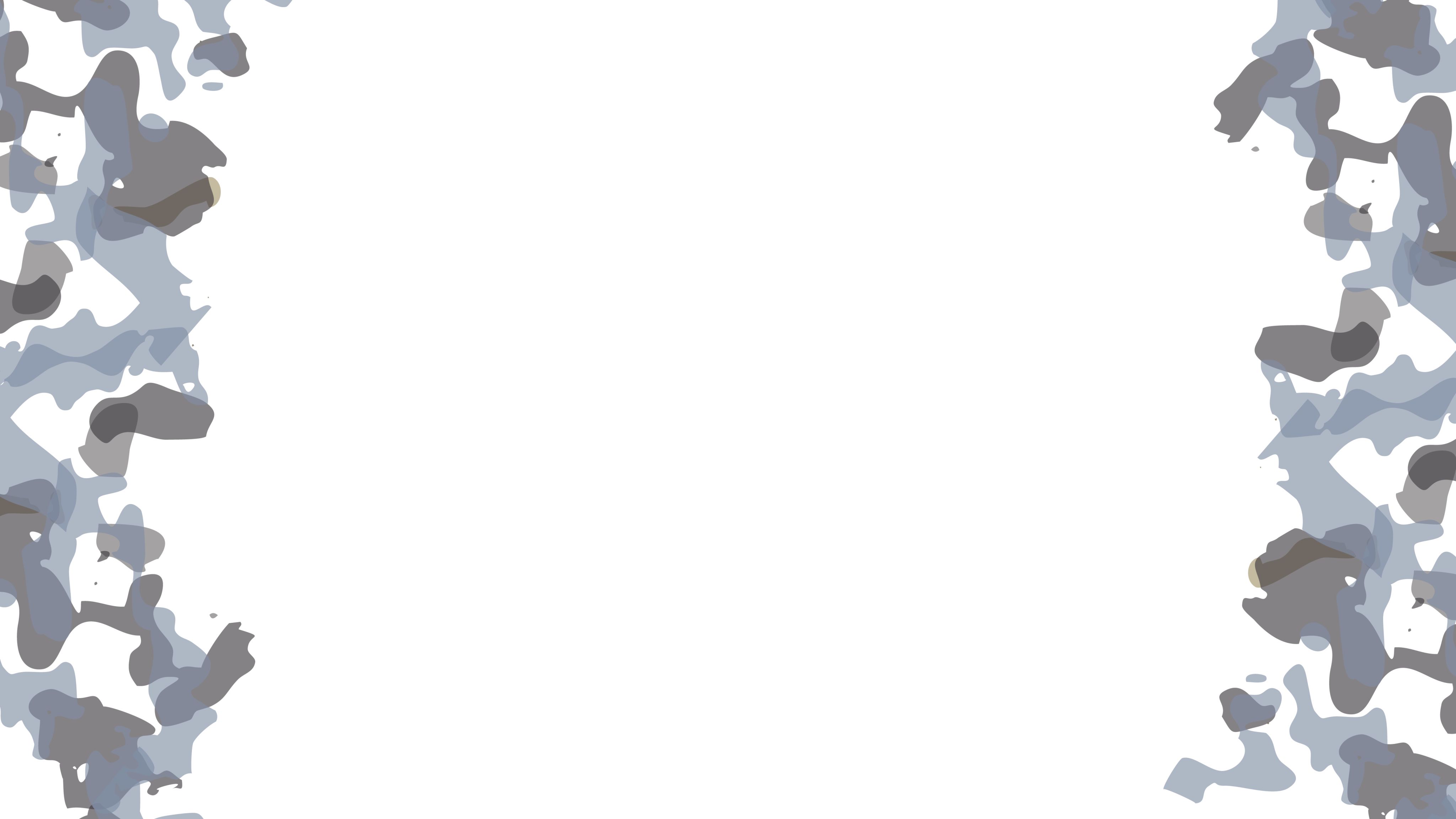
Yuleidy is very familiar with the situation in the Caracas neighborhood. She is very involved in local activities, particularly helping mothers in the community. She says that doing so is a way of dealing with the pain caused by having lost track of her only son, whom she preferred not to identify. The young man, who was a member of the mega-gang that controlled Cota 905, fled when Venezuelan security forces took over the neighborhood on July 9th, 2021. Since then, Yuleidy has not heard from him. "I couldn't get him out of that world," she lamented.
The world she refers to was also one of kidnapping and extortion, but by the mega-criminal gang that controlled the neighborhood between 2014 and 2021. Its leaders Carlos Luis Revete alias "el Koki", Carlos Calderon, known as "Vampi", and Garbis Ochoa Ruiz alias "Garbis" used the marginalized Caracas neighborhood as their center of operations. They also used basements to hide the people they kidnapped in other parts of Caracas, while they waited for their relatives to pay the ransom. To make the logistics work, they developed relationships with all kinds of people, including young women who traveled to different parts of the capital to collect extortion money and hitmen who negotiated the lives of the captives.
A source from the Scientific, Criminal and Criminalistic Investigations Corps (Cuerpo de Investigaciones Cientificas, Penales y Criminalisticas - CICIP) revealed that in 2020 "el Koki", "Vampi" and "Garbis" kidnapped the son of the owner of an iconic ice cream parlor in Bello Monte, Caracas. Officials received a report from his relatives, but also an order from their superiors not to capture those involved, but to focus on getting the victim out of the place alive. The official indicated that $250,000 were paid for the release. Such incidents have become "routine" in the Venezuelan capital.
Things changed in 2021, when the gang's dominance of Cota 905 came to a violent end. Between July 7th and 9th, around 300 members of the mega-gang clashed with state security forces. The armed dispute culminated with 3,000 officers entering and seizing the neighborhood, in what became known as Operation Gran Cacique Guaicaipuro. The operation left 38 people dead, according to the organization Monitor de Victimas, but the leaders of the mega-gang managed to escape. "El Koki" died seven months later in an alleged confrontation with uniformed men in Las Tejerias, a mountainous area 40 kilometers from Caracas. "Garbis" and "Vampi" are still at large and a reward of $500,000 is offered for each of them.
Gloria* witnessed the officers' incursion. She left her house with her children in the middle of a ceasefire that lasted several hours and allowed neighbors to evacuate. Six months later, she decided to return to her home, which is close to one of the abandoned houses that the criminals used as checkpoints and that the police occupied after the intervention and turned into surveillance stations and extortion centers. For Gloria and her neighbors, it is commonplace to hear what goes on in these facilities.
"We hear how they demand money from public transport drivers and vehicles all day long. They beat up anyone they catch, they beat them so badly that the screams can be heard from the street. They beat them up for passing through the area. They get everyone off the buses, those who don't have an ID card, they get them off and hold them until they pay, as well as drivers who have expired papers", she said.
COPS VS. MEGA-GANG

Some of the people interviewed claimed that their lives were calmer when the community was under the rule of the mega-gang because they imposed rules to maintain security in the area. They said, for example, that anyone who robbed a neighbor was severely punished. In addition, the gang became the delivery channel for government-subsidized food and medicine purchased by the inhabitants. Also, sources consulted said that its members guarded government authorities and representatives of non-profit organizations who came to the area to deliver donations.
For Keymer Avila, a researcher at the Institute of Criminal Sciences of the Central University of Venezuela (Universidad Central de Venezuela - UCV), the apparent longing of the neighbors for the times of the mega-gang is a practical choice in terms of cost-benefit. He explained that it is not that the community in the area romanticized the Cota 905 criminal groups, but that they guaranteed a certain, albeit violent, order in the area.
Neighbors report that relations with the members of the criminal gang were of minimal coexistence. In contrast, they say that the police arrived in a violent manner, and now mistreat women and children, raid homes and carry out looting. "What people want is to live their daily lives in a peaceful manner and they will opt for those who offer this in the most accessible, immediate and sustainable way", explained the expert.
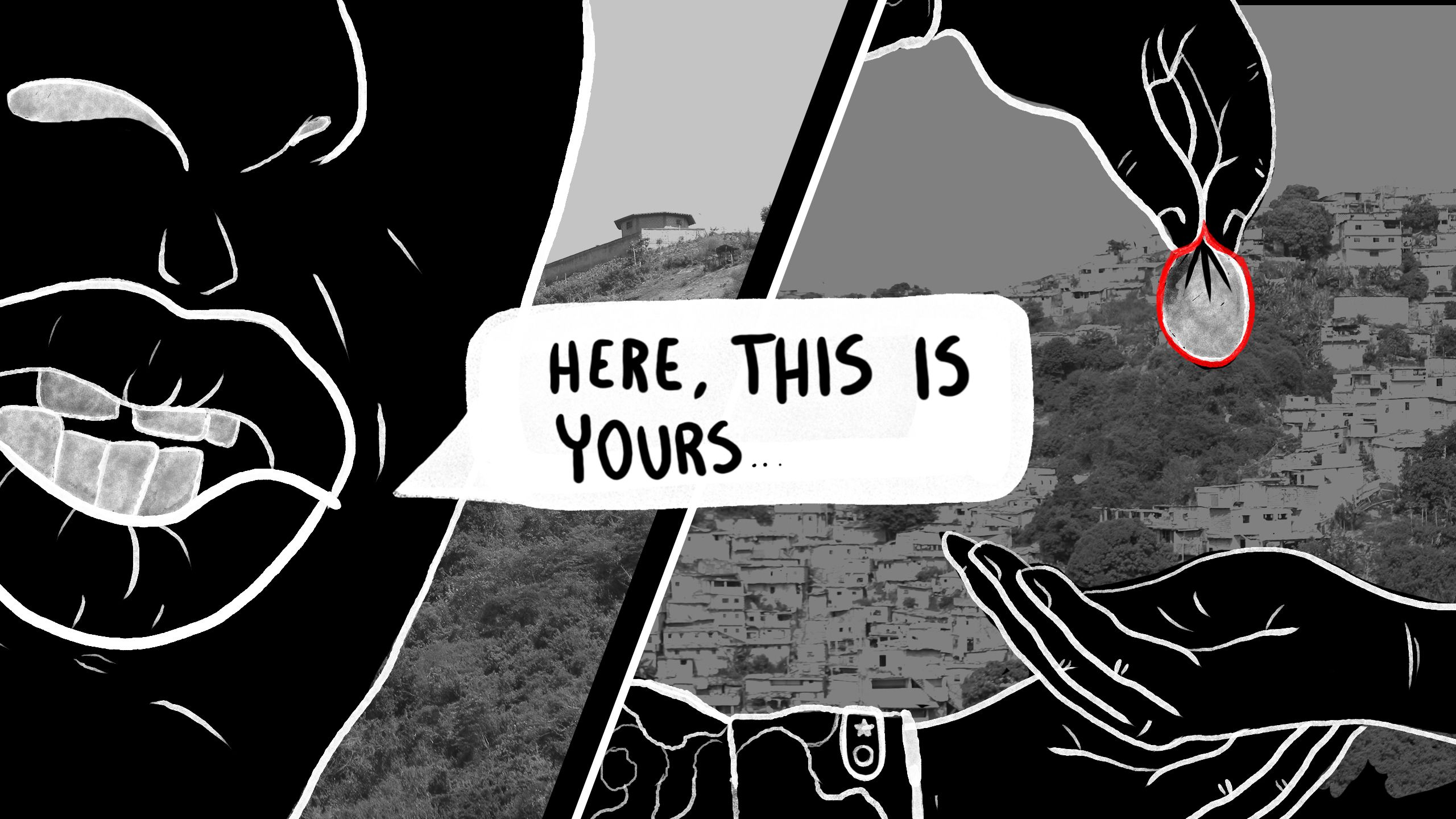
Indira*, another resident of Cota 905 affected by the actions of the police against the community, stayed in the area after the dismantling of the criminal group. Her son was a policeman and was accused by the authorities of being one of the collaborators of the gang of "Koki", "Garbis" and "Vampi". As a result, he had to leave the area because his uniformed colleagues began to extort money from him in exchange for not implicating him with the criminals. The PNB detained a relative of this officer in a bid to find out his location but when the relative said he didn’t have any information, he was asked for money for his release. The extortion did not materialize because his relatives went with a lawyer to the place where he was being held.
Sometimes, extortive detentions by the PNB are particularly strange. In April, Gloria was visited by two relatives, but before they arrived at her house, the police detained them for several hours because they could not justify where they had gotten the less than $100 they had in their pockets. She said that the police threatened to involve her relatives in a crime if they didn’t give them some of the money.
Meanwhile, Yaqueline's* teenage son was arrested by PNB uniformed officers while playing with water with some friends during this year's Carnival. His alleged crime was to run with the other youths when they gave him the stop sign. Dinorah, Yaqueline's neighbor, recalled that those closest to her "moved to raise $50 to pay the police to release the boy, who is 14 years old. This is a family that has often run out of money to eat and we had to pay that amount."
Yaqueline is very afraid to report the officers but some of the women in the community found the PNB's Achilles' heel. "The police don't like it when people make a fuss. They get nervous," said Nelly, another member of the community. She said that several of the extortions have been stopped when groups of women took over the modules to demand the release of some of the detainees.
So, when the police officers stationed on Guzman Blanco Avenue took the $10 she was carrying to buy medicine from one of Nelly's sons*, she went to complain to them. Together with the boy and other women who supported her, she started an argument. "I told him that if my son had used an illegal substance, they should leave him in jail, that I wasn't going to pay to take him out. As people began to approach us, they gave me my money back," said the neighbor.
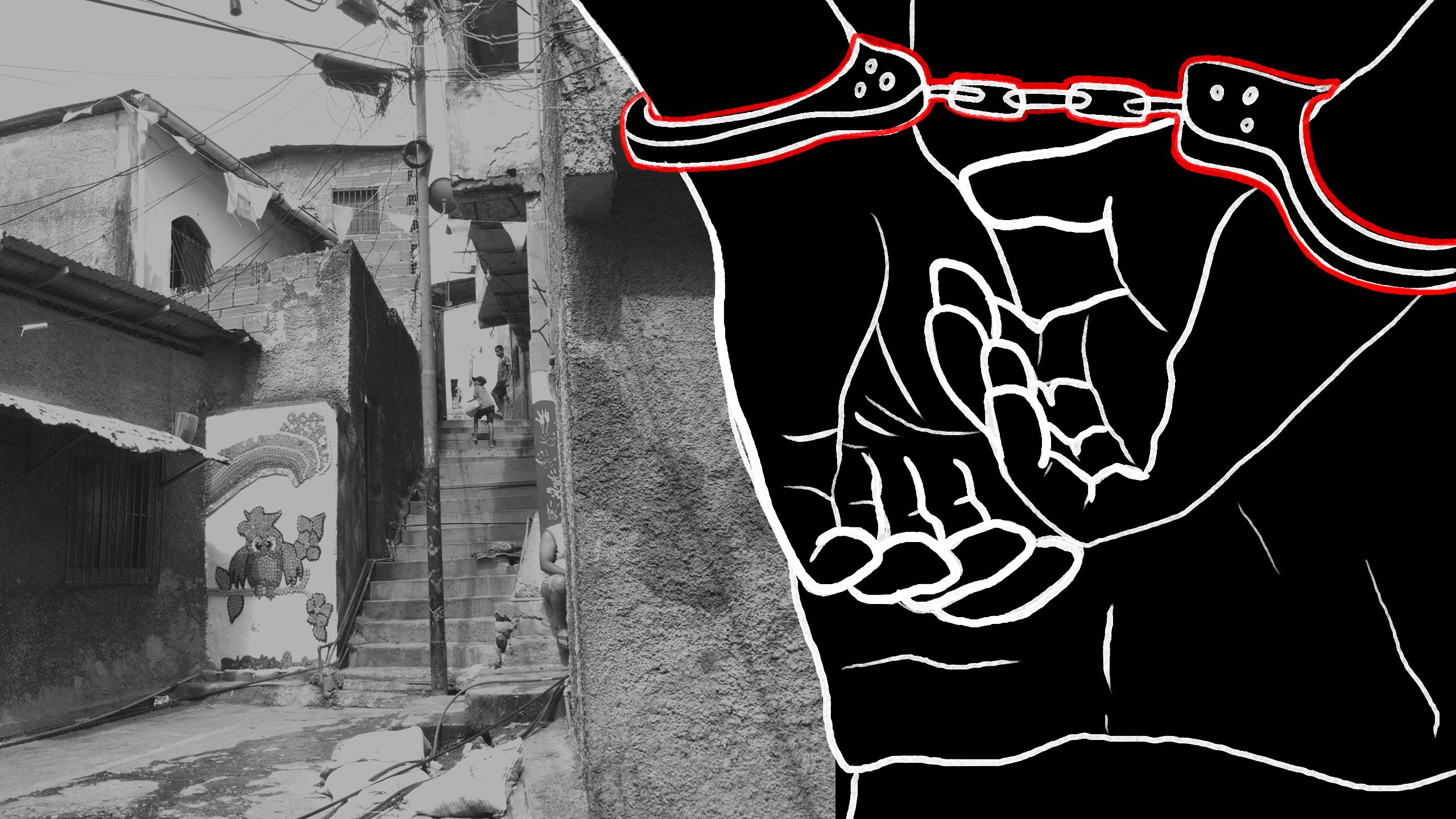
Other neighbors explained that on the avenue where Nelly's son was detained, the police frequently charge storekeepers a weekly “tax”.
Dinorah* explained that in September 2022, several neighborhood leaders called the PNB authorities to a meeting to report the actions of the officers who patrol the area. At that meeting, the neighbors of Cota 905 told stories of extortion, but also of raids on homes, threats and, on occasion, theft of their belongings.
The assembly was attended by a PNB commissioner named Jimenez, accompanied by two other officials of the same rank, one named Ventura and a third one who was described as tall, approximately 45 years old and with gray hair. Jimenez, who introduced himself as the chief of police at Cota 905, promised to resolve the conflicts. The uniformed officers have not raided any houses since then, but extortions continue.
A PNB source consulted for this investigation revealed that since the intervention of the neighborhood in 2021, the police officers deployed in Cota 905 report directly to the leadership of the police force. Major General Elio Estrada Paredes has led the PNB from 2019 until July this year, when Nicolás Maduro appointed him commander general of the GNB. Now, Brigadier General Ruben Santiago Servigna is in command of the national police.
Sources added that the government is aware of everything that happens in Cota 905. In fact, in March this year a group of ambassadors went to the neighborhood to participate in a cultural event organized by the community. After being harassed by police, one of the diplomats received a phone call from a high-ranking official of the Maduro government who warned him that they could not enter Cota 905 without her authorization.
Interviews were requested with the Minister for Internal Relations, Justice and Peace, Remigio Ceballos, as well as with the former director of the PNB, Estrada Paredes, and the current head of the police force, Santiago Servigna, through letters delivered to their offices. At the time of publishing this story, no replies had been received.
Recent events confirm that police extortion is becoming increasingly common in Venezuela. One of the most notable cases occurred on May 30th, when the then director of the PNB, Elio Estrada, ordered the intervention of the airport service area located at the Simon Bolivar International Airport in La Guaira, following the arrest of three commissioners denounced by junior officers for extortion. According to information from police sources, the chiefs demanded a daily fee of five dollars from the officers on duty, which generated a weekly income of between $360 and $400.
In June, the Venezuelan media outlet Armando.info published an investigative report in which it revealed cases of extortion by the PNB of young middle-class people in Caracas, who were arbitrarily detained at the administrative headquarters of the police force. Impacto Venezuela also published a report in July showing testimonies from residents of Cota 905 who accuse the security forces of harassing them.
Despite these allegations, the situation of PNB officers involved in crimes could worsen. On May 5th, 2023, an office was created to defend police officers involved in criminal activities, ranging from robbery and theft, to rape and other crimes. The office is staffed with lawyers to advise and defend police officers.
PEACE ZONES

Neighbors of Cota 905 interviewed for this report fear that police abuses in the neighborhood could lead to the birth of another criminal gang, as a strategy to stop extortions and other excesses by the PNB.
In 2015, when the mega-gang controlled the area, representatives of the national government came to meet with its leaders for the implementation of a "peace zone", an experiment with which Maduro tried to control violence in several neighborhoods across Venezuela. But the "peace zone" ended up being a way "Koki", "Vampi" and "Garbis" found to divide Costa 905 among themselves and guarantee that no other gangs would emerge in their area.
Jaime, the neighbor who took part in the collection to pay the police who held two young men close to his family, said he was present at one of the meetings held between March and April 2015 to set up the "peace zone". He remembers the three leaders of the mega-gang and national government authorities, including the then Vice Minister of Citizen Security, Jose Vicente Rangel Avalos.
Despite the agreement between the gang and the government, three months later the first incursion of the questioned Operation Liberation of the People (Operacion Liberacion del Pueblo - OLP) took place in the community, resulting in 14 deaths and triggering illegal raids by uniformed officers, robberies of homes and neighbors, as well as dozens of arbitrary arrests. Witnesses interviewed for this report said that the police helped the leaders of the mega-gang escape, and that despite the intervention, they maintained control after the OLP. For the next two years, the inhabitants of Cota 905 say they were harassed by the police, who carried out detentions and intimidated locals.
"The community was a victim of the mega-gang because they exercised social control over them, which had a cost linked to death, extortion, fear and disappearance", Carlos Trapani, general coordinator of the NGO Cecodap, said.
In its report Esclavizar para delinquir, the non-governmental organization revealed that the ringleaders strengthened their criminal group by recruiting young people from Cota 905, who were offered different positions, not only in the underworld, but also as food deliveries, party organizers and other roles related to social activities.
Today the criminal gangs no longer control the area, but the community is still under the control of an armed group, which extorts them, simulates crimes and illegally deprives them of their freedom. Irregularity is the norm in Cota 905. Several inhabitants said that many of their neighbors want to move elsewhere to protect their children and that, if they had money, they would have moved by now
"The future of the community is at stake because we don't want to see the same kind of gangsters as before, but the youth is being lost because, due to these same police gangsters, the kids are becoming delinquents," lamented Jaime.
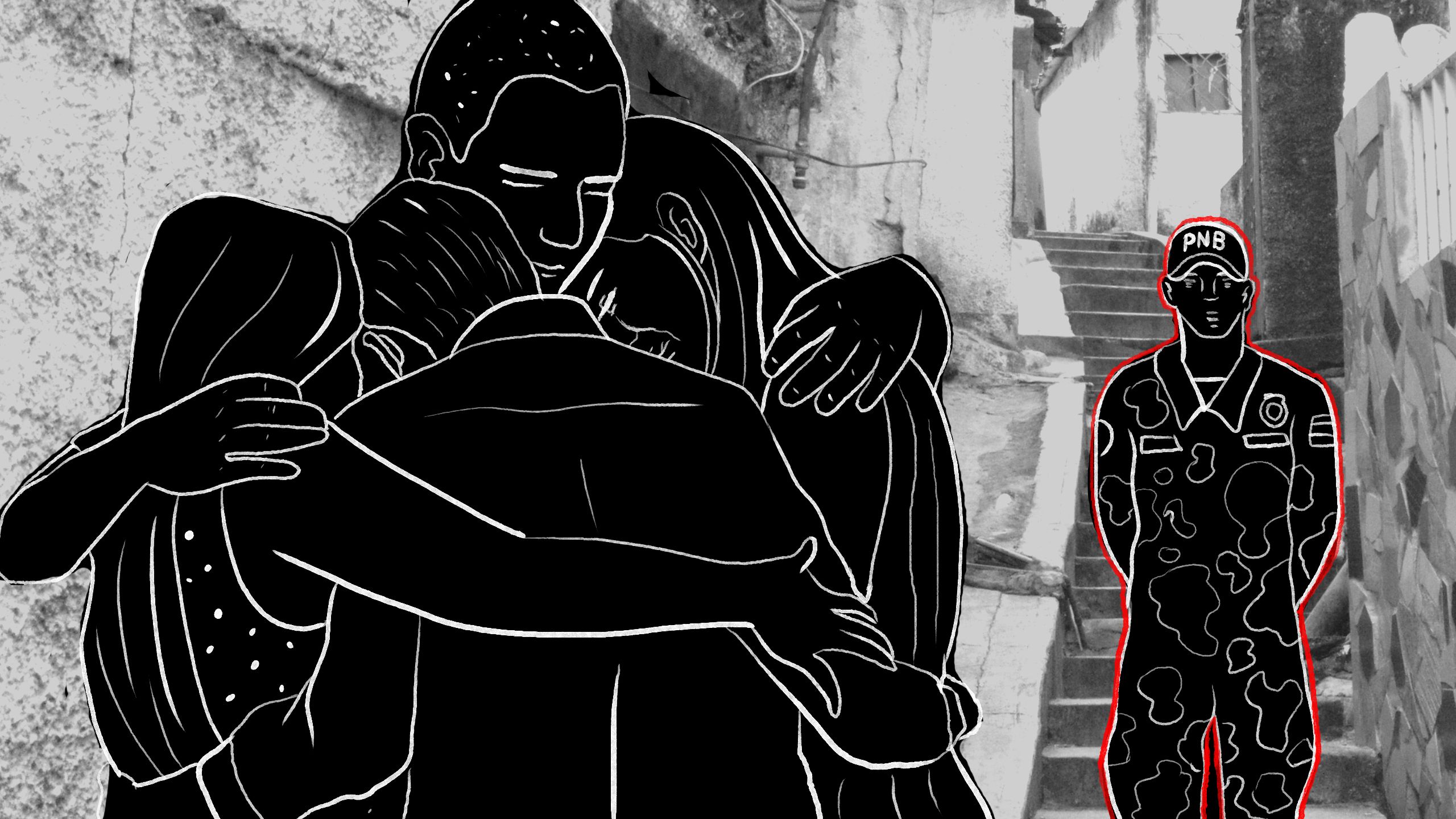
*Note: The names of the people interviewed for this report have been changed in order to protect their safety. During the investigation process, the journalistic team went to the Ombudsman's Office to find out if it had received complaints of extortion in Cota 905. An official confirmed they had received reports of human rights violations from inhabitants of this neighborhood, but did not specify whether they were the extortions described in this report.
CREDITS
Research
ARI
Design, infographics, Illustration and Video
ARI
Editorial support
Team at CONNECTAS
